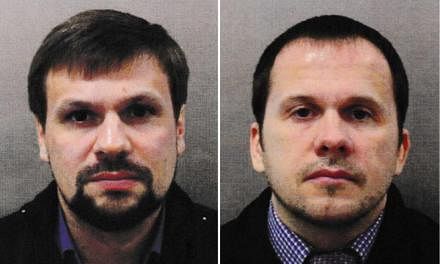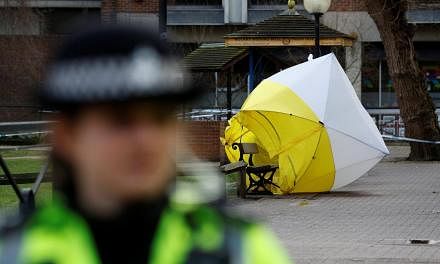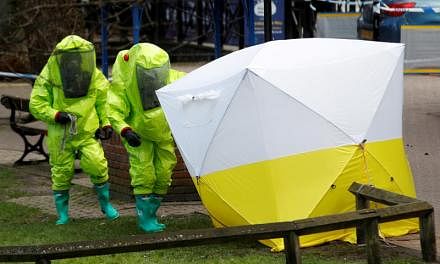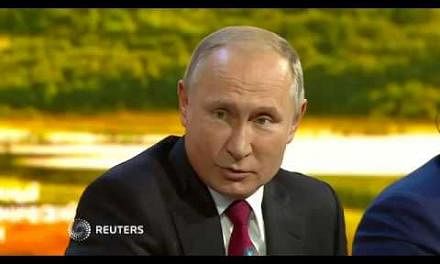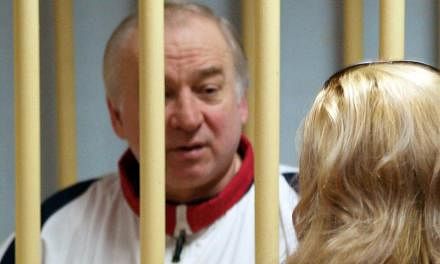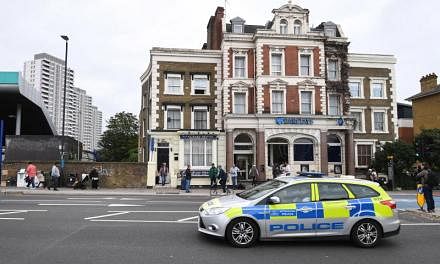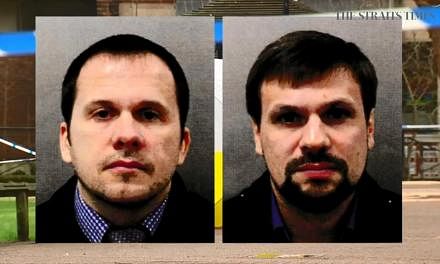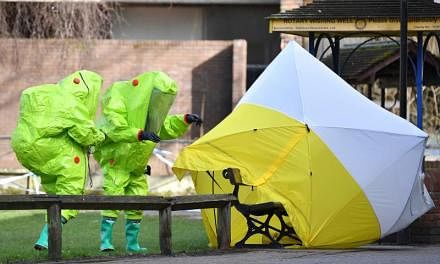LONDON (WASHINGTON POST) - The United States and two major European allies on Thursday (March 15) formally backed Britain's claims that Russia likely was responsible for a chemical toxin attack against a former spy living in England, calling it the "first offensive use of a nerve agent" in Europe since World War II.
The joint statement from the leaders of France, Germany, the United States and Britain signaled a further ratcheting of international pressure on Russia that has been mounting since former double agent Sergei Skripal and his daughter, Yulia, were found comatose on March 4.
In the statement, the four leaders said they shared the view of British investigators that "there is no plausible alternative explanation" for the attack. They added that "Russia's failure to address the legitimate request by the U.K. government further underlines its responsibility."
Prime Minister Theresa May had asked Moscow to explain how Novichok, a military-grade nerve agent developed by Russia, came to be used in the town of Salisbury. She posited that either Russia was directly involved or it had lost control of a chemical weapon.
Moscow responded to the ultimatum with scorn and sarcasm, ultimately blowing off May's demands.
"It is an assault on U.K. sovereignty and any such use by a state party is a clear violation of the Chemical Weapons Convention and a breach of international law," the four leaders said their statement, released by May's office.
"It threatens the security of us all," they added, without spelling out any possible further reprisals by the United Kingdom and its allies.
Asked by reporters on Thursday whether Russia was behind the attack, President Donald Trump said: "It looks like it."
"I spoke with the prime minister, and we are in deep discussions - a very sad situation," Trump said.
"It certainly looks like the Russians are behind it, something that should never, ever happen." He added that his administration was taking the attack "very seriously."
The next move could come from Moscow. Russia would respond "very soon" to Britain's retaliatory decision to expel 23 Russian diplomats, Foreign Minister Sergey Lavrov said on Thursday.
"The answer will come very soon, I assure you," Lavrov said. "You know that we, as polite people, will first communicate this response to our British colleagues."
In Britain, May received widespread support for her decision to expel the 23 Russians believed to be involved in espionage and to suspend high-level meetings between British and Russian officials.
The left-leaning Guardian wrote in an editorial that May was right to set out a "measured retaliatory response." The right-leaning Daily Telegraph said the prime minister could have gone further, but nonetheless praised her response as "commendably robust."
Analysts said that while May did announce concrete measures, she was also holding back in the event that Britain wanted to escalate its response later on. The British government will want to have "weapons in the armoury," said James Nixey, head of the Russia and Eurasia program at Chatham House, a London-based think tank.
On Thursday afternoon, May made her first appearance in Salisbury since the attack, speaking there with officials and residents.
"We do hold Russia culpable for this brazen, brazen act and despicable act that's taken place on the streets of what is such a remarkable city," she told the BBC.
